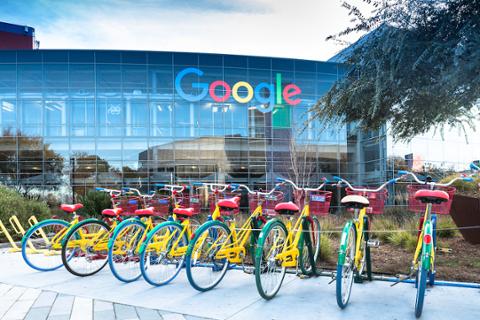Google plans on slowing its hiring down throughout the rest of 2020, according to new reports. That’s a reflection of how much the COVID-19 pandemic has changed not only the tech industry, but also the world economy as a whole.
“We believe now is the time to significantly slow down the pace of hiring, while maintaining momentum in a small number of strategic areas where users and businesses rely on Google for ongoing support, and where our growth is critical to their success,” Google CEO Sundar Pichai wrote in an email to employees that was obtained by Bloomberg. “By dialing back our plans in other areas, we can ensure Google emerges from this year at a more appropriate size and scale than we would otherwise. That means we need to carefully prioritize hiring employees who will address our greatest user and business needs.”
What does that actually mean? In addition to slowing the pace of hiring, Google plans on investing more in datacenters and “machines” (per Pichai’s email); non-essential business and marketing efforts will be cut back. In March, Google also initiated an extensive work-from-home policy, along with a fund that will pay sick leave for the company’s network of temporary staff and vendors.
These moves make sense in context. Google finds itself in an odd position: With a sizable percentage of humanity in self-quarantine, its services are enjoying huge demand. People need Google services and Android phones in order to communicate; businesses need Google-supplied storage and compute to conduct (or save) their operations. At the same time, though, it’s increasingly clear that the pandemic is crushing ad revenue, which is Google’s main source of income.
“Hundreds of thousands of small businesses who probably count for 70 percent of social and search, they will stop advertising for weeks as they are closed,” Vincent Letang, executive vice president and director of global forecasting for Magna Global, the media buying unit of global ad agency IPG, recently told Axios. “For some of them, it will be hard to come back, as many won't have liquidity to start marketing.”
In addition, these small and midsize businesses don’t have long-term contracts with Google; they can pull their advertising dollars quickly in response to a change in market conditions, which means that Google’s revenue can plunge off the proverbial cliff pretty quickly. Nor is Google alone in this situation: analyst firm Cowen & Co. predicts that Facebook will see an 18.8 percent decline in ad revenue this year, just ahead of Google’s estimated 18.3 percent haircut.
According to the same analysis, Twitter could see its ad revenue drop 17.9 percent, and Snapchat will lose 30 percent. And those are just estimates—things could be better or worse, depending on the course of the virus and when businesses feel safe to re-open (and start advertising again).
Meanwhile, Google needs its best sysadmins, database and datacenter experts to keep its systems running despite increasing demand—hence the slowdown (but not halt) to hiring.
For more COVID-19 content, check out the COVID-19 Jobs Resource Center.


